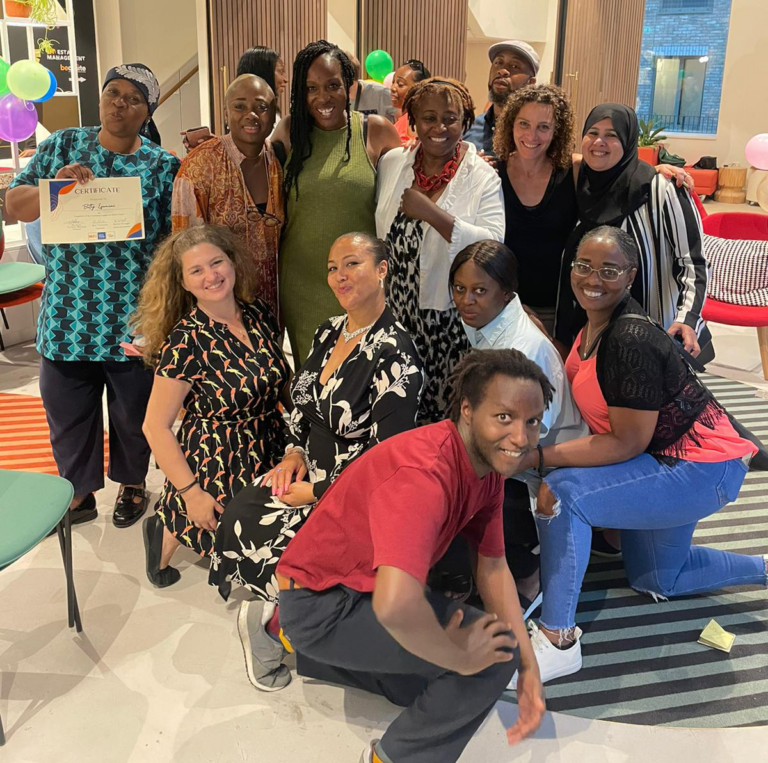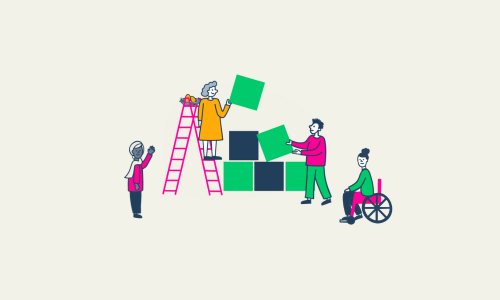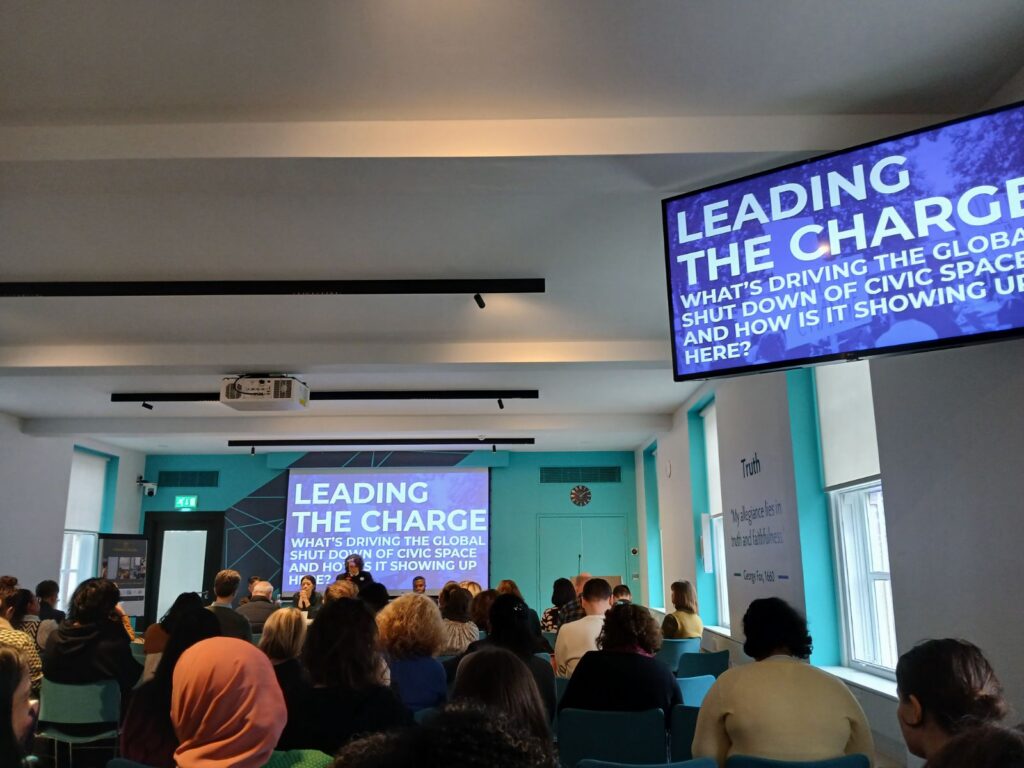BRINGING THE SYSTEM - The role of fiscal hosting in place based work

Written by Anya Stern
Director of Practice at The Social Change Agency
- Blogs
I first came across fiscal hosting as a grant-maker, working in an institution that had been giving grants to organisations since its inception. We would check people’s registration, Boards of Trustees and recent accounts and use this information to understand their robustness and their ability to do the job they were set up to do.
I remember the first group that I looked at who were being hosted by another organisation in order to access money. Larger charities have often hosted small projects or groups as they’re finding their feet, and when it works, both have a lot to gain from the relationships. Unfortunately it can often get complex, and the power dynamic inherent in someone else holding and controlling your money can affect the work of both.
Fiscal hosting services are quite new to the UK and most, like The Social Change Nest (SCN), were set up to enable unincorporated groups and occasionally individuals to have access to money and other resources (including credibility) from ‘the system’. This is of enormous value, and for many, this will be enough.
For others however, the system still requires them to be something that is counter to their values and their value. By insisting that people still come to where the system lives, funders are institutionalising activists, individualising collectives, and creating hierarchies of power and access within spaces and geographies where collaboration, participation and community has historically been key.
Early in the pandemic The Social Change Agency (SCA) were approached by Impact on Urban Health, who wanted to get money into communities living and working in identified postcode corridors of ill-health. They were keen to get funds to a more diverse group of leaders in the community, especially in these corridors of ill health.
The Social Change Agency engaged in extensive ground work to find the people already doing work in the community and get to know them. As a large funder, Impact on Urban Health didn’t have the experience or capacity to reach hyperlocal networks and groups. We were well placed to get going as our senior consultant and project lead was also a South London resident and experienced community organiser. Between 2019 and 2020 our work sat in a Covid response context, and we were focussed on supporting people’s immediate and basic needs. Our aim was to give £1000 in unrestricted grants to up to 22 groups. In the end 17 were supported and they were working on a range of projects from food to offering basic support to people who were isolated and in need. As well as spending the time finding who was doing the work, we had to spend time getting to know people, building relationships and trust.
Following this successful pilot project work, SCA worked with IoUH to put together a more comprehensive programme based on the hypothesis that if community leaders were provided with infrastructure where they lived, then they could bring increased skills and resources to communities, and collectively build civic power, in turn tackling the causes of poverty and ill health.
While the pilot demonstrated the value of combining real community knowledge and trust (and trust building) with the practical solution for people to manage their finances on Open Collective, the main programme involved deep community organising, larger grants and a collaborative leadership programme at the heart of it. Three community organisers were hired, people that we met during the initial phase and hiring staff who had paid time to meet with people where they were and help bring the different elements of the programme together was a key lever of change.

Fiscal hosting is, in its simplest terms, when one organisation or incorporated body formally holds funds and takes on the legal responsibility for those funds for the benefit of someone else.
Often this is for individuals, small unincorporated groups, movements or collectives, but it can also be used by larger groups who for other reasons do not wish to be incorporated in a way that fits within our current options of being a company or charity, and it can also be used by groups who are incorporated but for various reasons want to operate through a host.
As well as replicating and scaling the initial work of getting funds to the heart of where they could really make an impact, we facilitated growing connections between local communities and creating a networked group of leaders, meaning there would be longer term capacity and resilience across the focus areas of the boroughs. To do this, the programme added a participatory grant making opportunity to distribute the earmarked funds, a leadership programme that would be delivered by The Social Change Agency’s partner on the project, BUD Leaders (BUD), and open network meetings and training sessions. These events and opportunities were open to anyone in the area, and across the two years people accessed a number of different aspects of the programme. The open training sessions were put on by The Social Change Agency team, and because the organisers were salaried staff they were available to support groups or individuals with real flexibility.
One of the key aspects of the programme is that apart from the BUD courses, there weren’t fixed numbers of people we were trying to engage with, limits on how many people we could work with or how many different aspects of the programme people could use.
CLIM started out with a funders’ ambition to get money to people who needed it - where they are; to bring the system to them. What we all learnt together was that access to funds is just a small part of what is often needed.
For example, we have seen through CLIM and other work that there is a significant number of groups who don’t spend the money as quickly as you’d expect. While the funds are welcome, and often given without restrictions,sometimes it is the first money that groups or individuals have received to freely spend on their projects. Without knowing if they’re ever going to have funding again, many want to save it for when they feel they ‘really need it’. Others feel unsure of how to make decisions about how to spend it, what to prioritise the funds for, and whose input to get when they have a loose structure or are working alone.
Participatory grant making – or PGM – started as a movement to involve people affected by issues (traditionally thought of as ‘beneficiaries’ by grant making institutions) in decision making about who received funding. Over the years a community of funders and funder advocates have developed many different models of doing this work, from having local residents sitting on a panel choosing from shortlisted applicants, to opening up strategy making to be co-created by people most impacted by the inequalities and injustices the grantmaking is hoping to change.
Recent debates about decolonising funding and asking the question of whose money it is has moved beyond early discussions about participation.
Under the CLIM programme, The Social Change Agency were able to support community activists and groups who were new to working in this way, including spending time with people in their living rooms or over coffee, to walk them through signing up to Open Collective. Because staff had built up trust – throughout the duration of the project but more importantly over the years prior to us coming in to do ‘work’ – we were able to help adapt the system to an extent.
However, CLIM was also a funded project and like so many, it ran out of funding before we could transfer the assets over to the community to own. While we can still offer fiscal hosting to many of the groups, we are no longer institutionally attached to the communities. But the idea was always to have built capacity and helped grow local networks, and the hope is that these will live and grow long after the project has come to an end. And, because our staff were hired from those we met during the initial period, there is a good chance that knowledge and networks will stay within the communities.
We have also been building on our learning from CLIM and have been working with others to explore how fiscal hosting and infrastructure support can be a more integral part of place work. As in CLIM, many areas which are often overlooked or deemed too difficult to fund in, are rich with community leaders who have deep connections and a profound and nuanced understanding of the needs and resources of a place.
What is Open Collective?
Open Collective is a legal and financial toolbox for grassroots groups. It’s also a platform to help transparently manage your money, fundraising and legal status. It allows groups to pay expenses, receive donations, manage grants and sell event tickets.
It also connects hundreds of grassroots groups, providing access to a network of like-minded changemakers.
You can operate on OC under The Social Change Nest or another fiscal host, so you don’t have to incorporate your group.
There is a growing movement of place work across the UK and funders are keen to support the work, understanding instinctively the value of supporting more than charities or local infrastructure organisations. Some are interested in how to more effectively reach people who don’t have these more traditional groups, and others are interested in thinking about how power is embedded locally when some members of the active community are able to access the system, and others are not. Some are interested in bypassing organisations and groups altogether and feeding resources directly to people, either in a personal capacity or as part of collectives, with local leaders having access to funds that they can control and spend locally as they decide. This might include giving unrestricted funds to unincorporated groups, developing and running participatory grant-making programmes where local residents determine priorities and processes to disperse the funds, or paying for people’s time to come together and decide and how to collaborate to build the infrastructure, projects, capital or networks they need.
Place work can be thought about as work that happens in and is focussed on a particular geographical area. This however would be both a false, and incomplete understanding of the work as understood by communities who are engaged in it. In a recent discussion with people working in place across the UK, the following aspects of the work were highlighted as being important.
Place work has to be about the people and communities who live in the area (rather than organisations and services)
-
Place work has to build from the margins – focusing on the people and communities usually excluded from power/experience marginalisation.
-
Place work has to give people and communities genuine opportunities to participate in decision-making about things that matter to them
-
Place work needs to develop new, alternative governance mechanisms/ways of being together that open up rather than limit.
-
Place work needs to imagine and nurture alternative realities and possibilities
(Andy Crosbie – Collective Impact Agency, Gateshead)
How to design the system
Designing fiscal hosting systems and other infrastructure should take these aspects into account. As we learned through our work with CLIM, taking the time to look beyond local organisations and get to know local leaders can be pivotal.
Fiscal hosting isn’t the answer to doing place work well, but it can be an integral part of it, and can also be an excellent tool to help protect from doing it badly. We have found from all of this work that it is not just having a proxy bank account that is key, but having support and structure you can lean on when you need it that doesn’t ask for anything in return. Fiscal hosting and flexible infrastructure support can act as a customisable foundation for work within communities. Groups of people can design the system that will work for them and then create ways for funders and others with resources to feed these into the system as and where it is.
Place focused fiscal hosting – some things we’ve learnt
Having a host outside of local anchor groups can provide a neutrality and avoid elements of creating or exacerbating local power dynamics between groups or communities.
Fiscal hosting can be used by groups who have access to formal financial infrastructure, as platforms like Open Collective allow for transparency among dispersed people
Fiscal hosting can adapt to different governance models to enable accountability that works for different contexts and needs, i.e. it can provide a mechanism to pay individuals income, it can hold funds for groups engaging in participatory decision making processes, it can be used to distribute money from institutional funders to both incorporated and unincorporated groups, and it can be used to collect donations from individuals or communities.

